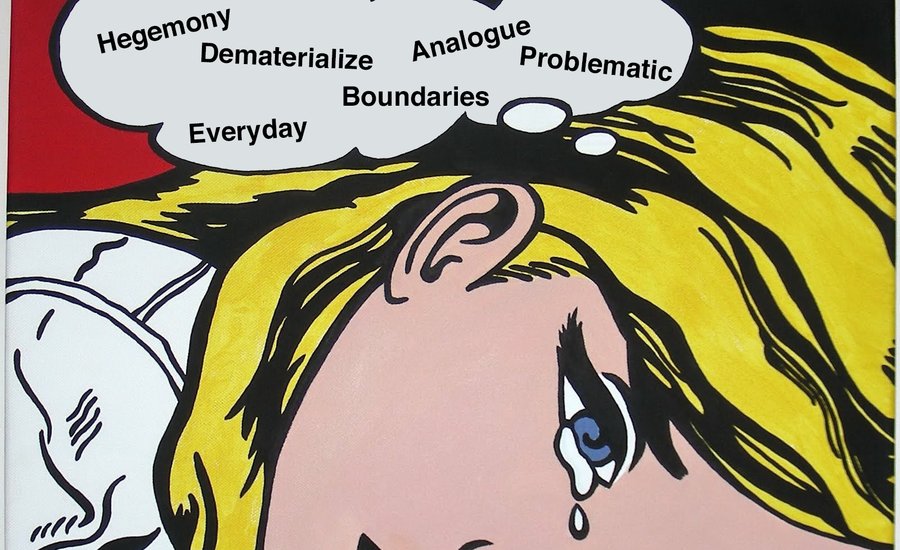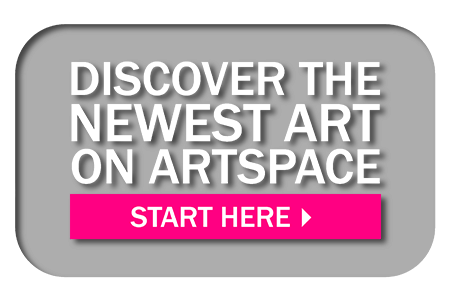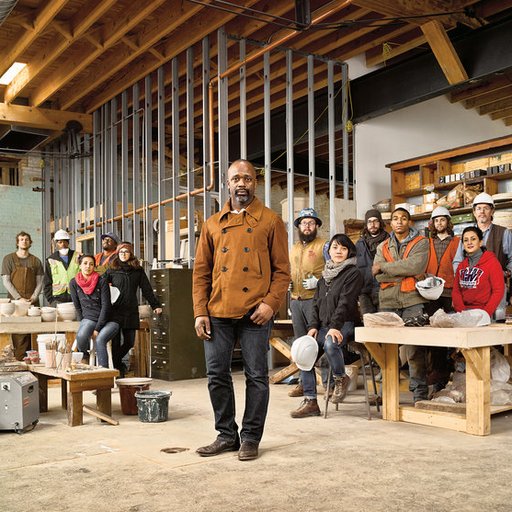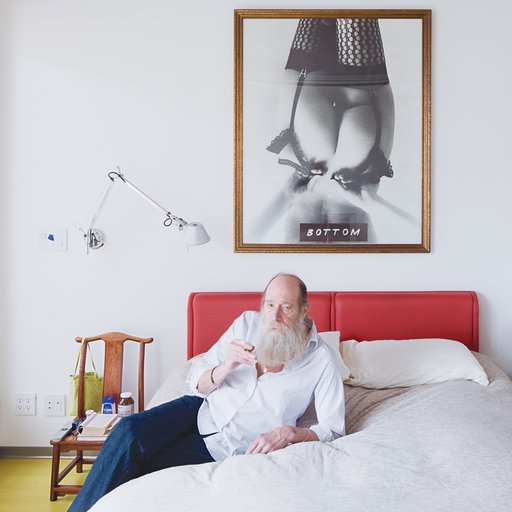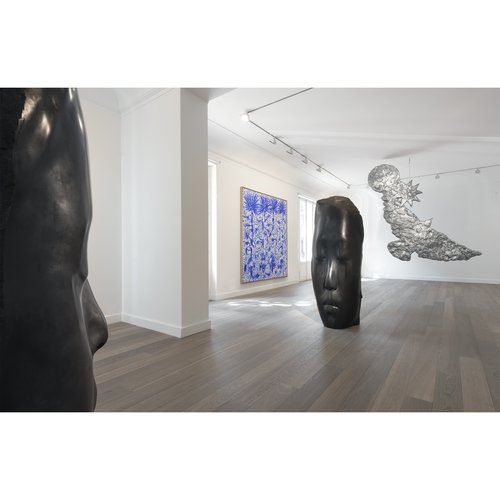It’s Armory Week in New York City, which means the common tongue in Manhattan for the next few days will be a form of vaguely decipherable art-speak. The confusing terminology encountered around art fairs is half industry jargon, but even seemingly-intelligible words take on totally different connotations among insiders.
If you’re currently wondering how you’ll keep up, we have just the thing to help read between the lines: 43 need-to-know terms and their pithy definitions written by the London art magazine frieze ’s co-editors Dan Fox and Jennifer Higgie . Originally published in the September 2011 issue of frieze , the pair based their list off of Raymond Williams’s seminal 1976 index Keywords , with some significant updates (think terms like “Facebook”) befitting their 21st-century perspective. Here, we’ve excerpted the most art-fair-relevant terms from Phaidon's frieze A to Z of Contemporary Art a collection of essays, interviews, and graphics from the magazine’s 25-year history. Read on to learn them all, and check out the original frieze piece here to see all of Fox and Higgie’s irreverent and sometimes biting takes on the art world’s lingua franca.
Alienation: Karl Marx blamed capitalism. The main reason young people go to art school.
Alternative: To what? Not sure this exists any more.
Analogue: Not digital. Sounds simple but it’s not.
Borders / Boundaries: In the art world they rarely refer to geography.
Climate Change: Called global warming until everyone noticed how cold it was.
Collective: All together now!
Concept : A fancy word for a thought.
Dematerialize : It comes to us all.
Emerging : One of those categories that no-one can agree on. One person’s emerging is another’s emerged. What they’re emerging from is rarely discussed.
Ethics: A word used with surprising frequency by a community as murky and unregulated as the art world.
Everyday: Life is short but the days are long.
Exploitation: See: Ethics.
Globalism : Hello the 1990s!
Hegemony : Popularized by Antonio Gramsci’s usage, denoting the soft-power imperialism of the ruling political system. In cultural terms it is the feeling that at every art fair you go to you bump into work by Murakami/Koons/Katz.
Hermeneutics : The theory and practice of interpretation. Vladimir Nabokov described it thus: “We live in a stocking which is in the process of being turned inside out, without our ever knowing for sure to what phase of the process our moment of consciousness corresponds.”
Ideology: Generally used pejoratively to denote Jedi-like mind control. e.g. ‘I like burgers, I think they’re delicious ... No I don’t, it’s those capitalist pigs telling me I want one! Damn this prevailing ideology!’
Liberal : Confusing term. Used by the right as a synonym for the left, and by the left to describe capitalist economics.
Marxism: Bossy. Once declared dead, it now seems like a rather attractive option—again. See: Ideology.
Media (Multi-/Mass-) : Multimedia usually refers to artists who require lots of plugs, leads, TV monitors and speakers for their art work. Mass media is a rather quaint term to describe the power of the broadcast and publishing industries.
Modern: If philosopher Bruno Latour is correct in arguing that “we have never been modern,” then there are a lot of museums out there with a serious branding problem on their hands.
Nationalism: Something believed in by idiots.
Negativity: Try writing a negative review of someone’s show and still maintain that “no one cares about art criticism any more” when they corner you at the bar.
Periphery: The edge, but of what and where? A place, a state of mind, a prejudice in a constant state of flux.
Post-Feminism: “If the contemporary portrayal of womankind were to be believed, contemporary female achievement would culminate in the ownership of expensive handbags, a vibrator, a job, a flat, and a man—probably in that order. […] How has it come to this?” Nina Power
Postmodernism: Oh God, now you’re asking. Jeez. Yup, that’s a biggie … Well now … Hmm … Let’s see. Extreme relativism, a culture dominated by pastiche and revivalism? You’re probably best off reading Fredric Jameson’s Postmodernism Or, the Cultural Logic of Late Capitalism (1990). I’m off to look at David Salle’s paintings at the Centre Pompidou.
Practice: “Artists don’t make works any longer. They maintain practices. Like dentists, only less honourably. Or like musicians trying to get to Carnegie Hall. When do you stop practicing something and do it?” Peter Schjeldahl.
Problematic: What isn’t?
Progressive: It’s what the art world assumes it is. But is it really? Discuss.
Research: “I see a lot of student shows now that look like they were put together by librarians.” Mark Leckey.
Ruins: Last fashionable amongst 18th-century aristocrats, ruins—especially modern, industrial ones—have become a popular subject matter for artists over the past decade. Photograph a disused factory, give it a title pinched from a W.G. Sebald novel, and hey presto! Instant art!
Science: You think art deals with big subjects? Try telling that to the scientists working at NASA or on the Large Hadron Collider at CERN.
Site-Specificity: “Let’s do the show here!”
Solipsism: “So when I say that I know me, how can I know that? / What kind of spider understands arachnophobia? / I have my senses and my sense of having senses / Do I guide them? Or they me?’’ Robert Wyatt.
Spectator: Hardly any better than “viewer”—it sounds more like someone going to the races or to a football match, than to an art gallery. See: Masses; Viewer.
Standards: Often assumed to be falling.
Style: Not as big a problem as some people would have you think.
Structural: A word often associated with the sinking feeling one gets when sitting down to watch a program of 1970s artists’ films and finding out how long it’s going to be. Whilst some wonderful and important artists’ films have been made under the rubric of structuralism, there have been some really boring ones too.
Subjective: Anyone who argues their art or criticism is “objective” is lying. But that’s just our opinion.
Theory: Art students can be roughly divided into those who start by making things then read some theory, and those who read some theory, then make things.
Vague: Next time you encounter an art work or exhibition described as “open-ended,” ask your self whether what that really means is “vague.”
Video: If you’re into fetishizing obsolete technology, then you’ll know that VHS tapes are the new 16mm film in moving-image work. That is, unless you’ve got one of those new Canon HD cameras, in which case your artist’s video will look exactly like everyone else’s.
Viewer: Often presumed to have preconceptions that need shattering.
